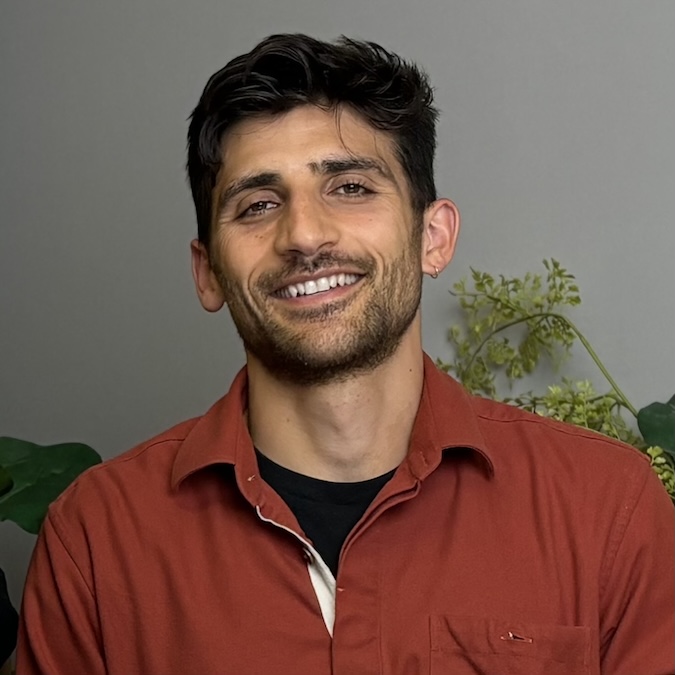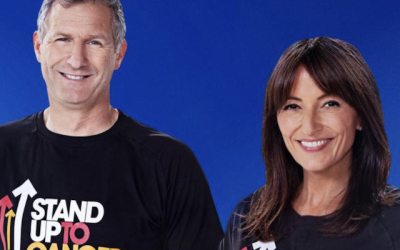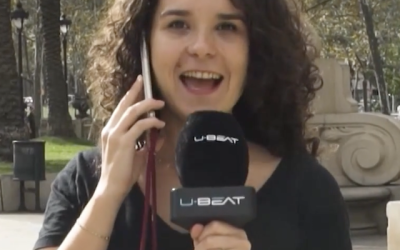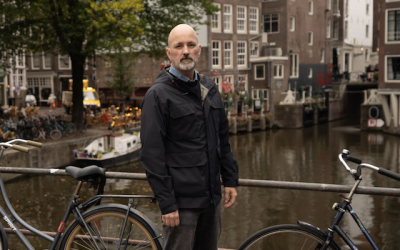For years, Ben Zand has been one of the UK’s most distinctive factual storytellers, cutting his teeth inside the BBC and then building his own production company, Zandland. But with the launch of Human – a self-funded YouTube documentary strand – Zand is making his boldest move yet: turning away from the safety net of broadcast commissioning and putting his own money into a digital-first future.
“It’s terrifying,” Zand admitted when speaking on TellyCast. “You’re putting your own money in upfront. Commissioning is like a drug – the crack of TV – and weaning yourself off it is hard. But the only way to really build something sustainable in this space is to take that risk.”
That risk has already produced results. Zandland has banked 12 films for Human, with more in production, and will release two a month in the launch phase. Episodes run between 20 and 40 minutes, deliberately structured so they can sit comfortably on YouTube while also mapping to traditional TV slots.
The strategy is clear: build a body of work, generate data, and prove the economics. “We’ve gone into beta test mode,” Zand explained. “We know how to make this type of content without huge amounts of cash, and we’re working with teams who have done it before. Once the films are out, we’ll have real data to take to brands, investors and TV buyers.”
Distribution conversations are already under way, with broadcasters exploring acquisitions of individual episodes. The plan is to keep production costs low – in the £20,000 range – to allow for healthy margins through ad revenue, sponsorship, partnerships, and eventual secondary sales.
Zand is pitching Human directly into what he sees as a glaring hole in the market. Audiences once served by Vice and Vox are now cobbling together their factual fix from individual YouTube creators. While some have built strong followings, Zand argues many lack the journalistic training or access to tell stories with depth.
“There’s a huge underserved audience who want to understand the world but don’t want to be told what to think,” he said. “They’re getting a lot of partisan, hot-take content. We’re offering empathetic, non-judgemental films with proper access and reporting.”
The series travels widely – from a whites-only community in South Africa to a Chicago street gang, from an African tribe without modern technology to an American jailhouse. Subjects also include nudism, brothels, mental health and the realities of life under the shadow of conflict in Israel and Palestine.
At the heart of each film is the same proposition: to explore “what it means to be human” without sensationalism. “Some topics are inherently controversial, but most of what we’re doing is about understanding people in extreme circumstances with rationality and empathy,” Zand said.
What excites Zand most is the creative liberation that comes with self-funding. “It’s unbelievably freeing,” he said. “Nobody tells us what to do – we just create the stories we believe in. Development for TV can be disempowering because you’re subject to commissioners’ whims. This puts the power back with us.”
That doesn’t mean the audience won’t exert influence. In the long run, viewers themselves become the commissioners, shaping which strands continue and where Zandland doubles down. But unlike traditional TV, that feedback loop happens in real time and is transparent through platform data.
Behind the creativity is a clear business play. Profits from Zandland’s TV commissions are being reinvested into Human, with the aim of diversifying into multiple revenue streams: AdSense, brand partnerships, merchandise, live events, subscriptions and secondary TV deals.
Zand is careful to keep costs low with a streamlined production model: two filming days, one studio day, and a fast turnaround in edit. The use of a studio element allows him to deliver premium, TV-ready shows at scale. “It’s intelligent production,” he said. “We’re not stretching resources to breaking point – it’s achievable and replicable.”
The project is also designed to build a brand. Zandland is positioning itself not just as a production company but as a destination for factual storytelling. Human is the first strand, with others planned under the Zandland umbrella. “Our leverage lies in the brand,” Zand argued. “If we can build a community of Zanders, then we can take that anywhere – Netflix, Hulu, the BBC. The brand is the pitch.”
For other factual producers watching nervously as traditional funding models strain, Zand’s experiment offers both inspiration and a roadmap. He insists the key is to lean into what you do best, then apply digital discipline. “Do the thing you genuinely believe in,” he said. “We didn’t sit around trying to dream up a digital brand. We were already making this content. We just asked how to push it into this space in a way that works.”
It is still early days, but Zand is clear-eyed about the stakes. “If we can prove this works, we’ll launch more strands, bring in other creators, and build Zandland into a true digital studio. It’s risky, but the potential upside is massive.”
For an industry grappling with declining broadcaster budgets and escalating competition, Human may prove a test case in how to build sustainable, brand-led documentary businesses in the digital-first era.




